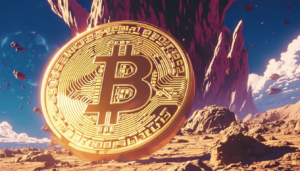In a recent in-depth interview, the CEO of Uniswap, Hayden Adams, shared his views and the company’s policies regarding the ethical distribution of their native cryptocurrency tokens. The decentralized finance (DeFi) platform, which operates on the Ethereum blockchain, has been at the forefront of the DeFi movement, revolutionizing how tokens are exchanged in a trustless environment.
The Philosophy Behind Ethical Token Distribution
Hayden Adams emphasized that for Uniswap, maintaining an ethical stance in token distribution is not merely a regulatory necessity but a foundational principle. Our approach to distributing tokens goes beyond legal compliance, Adams explained. We aim to foster long-term trust and community engagement, which are critical in the decentralized space where traditional oversight mechanisms may be absent.
Uniswap’s token, called UNI, was introduced to facilitate governance on its platform, allowing holders to vote on key changes and proposals. This move towards decentralized governance aims to align with the broader ethos of empowerment and participation that blockchain technology advocates.
Strategies for Fair Distribution
To ensure fairness in token distribution, Uniswap has employed several strategies. One significant approach was the initial airdrop of UNI tokens to past users of the platform. This decision was not just a reward system but a strategic move to decentralize ownership and control from day one. Distributing tokens to our users helped to ensure that those who are genuinely invested in the platform have a say in its direction, Adams stated.
Another critical strategy discussed by Adams is the ongoing transparency with the community. Uniswap frequently communicates any changes in token allocations or governance structures, maintaining an open dialogue with its users. This transparency is designed to build trust and encourage a more active participation in the governance processes.
Challenges in Ethical Token Distribution
Despite the robust strategies, the route to ethical token distribution is fraught with challenges. One main issue that Adams highlighted is the balance between wide distribution and the risk of token concentration in the hands of a few large holders. This is a common challenge in the cryptocurrency world, where whale accounts can sometimes sway decisions disproportionately.
Additionally, regulatory landscapes across different jurisdictions can complicate the distribution methods, especially when involving global users. Adams mentioned the ongoing effort to navigate these regulations, ensuring compliance while striving to maintain equitable distribution practices.
Future Steps for Uniswap
Looking forward, Hayden Adams expressed a commitment to continuous improvement of governance and distribution methods. Our goal is to iterate and refine our processes, ensuring that we adhere not only to the current ethical standards but also setting new benchmarks for the industry, he concluded.
The conversation with Adams not only sheds light on Uniswap‘s efforts towards ethical practices but also highlights the complex landscape of DeFi token distribution. As the industry evolves, the experiences and strategies of platforms like Uniswap will likely play a crucial role in shaping the norms and standards of future tokenomics in decentralized platforms.



























Discussion about this post